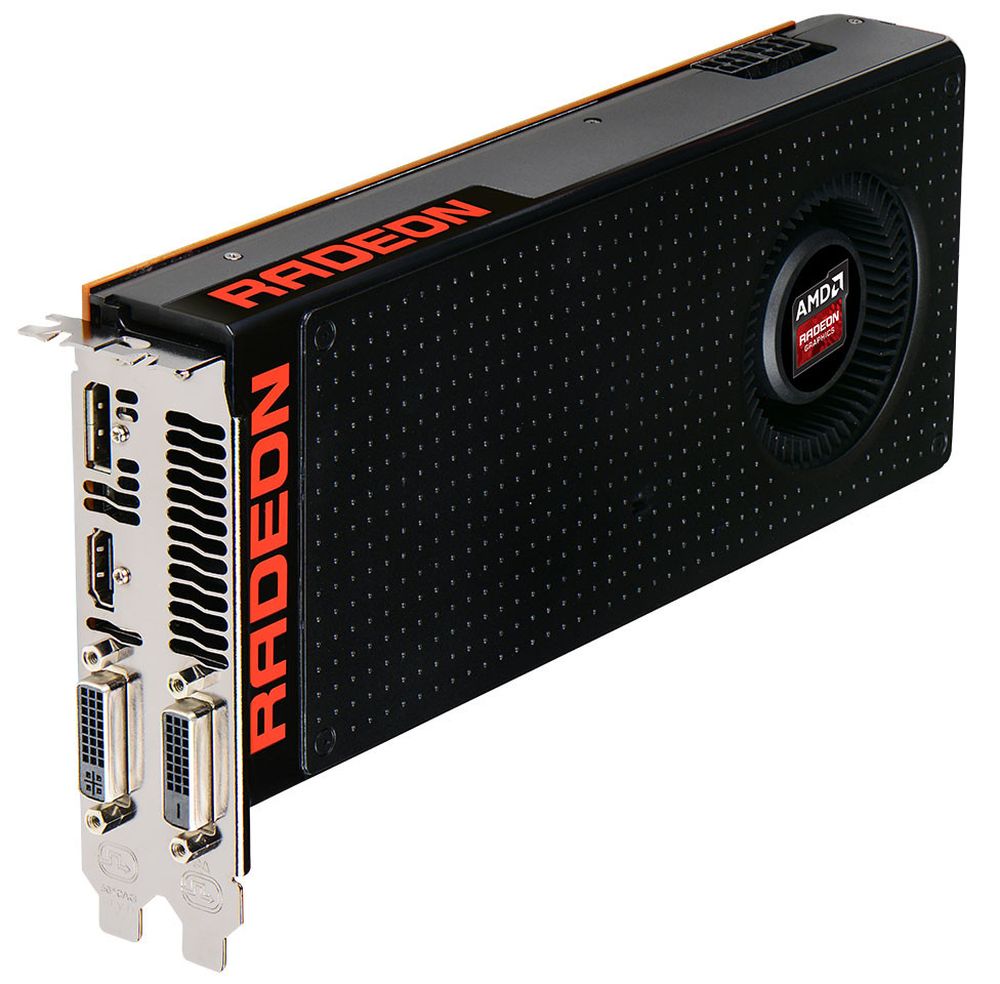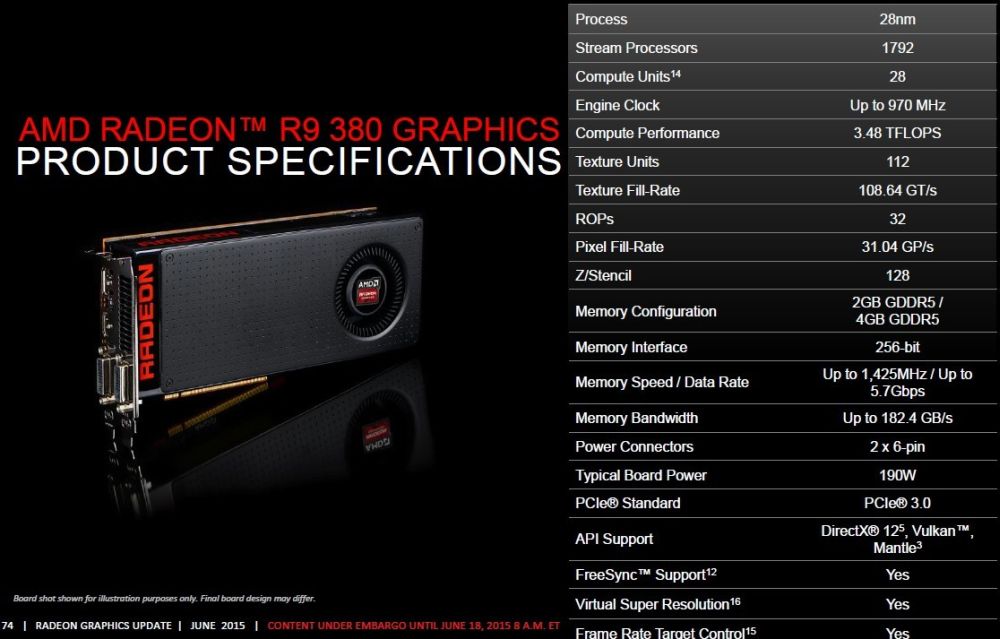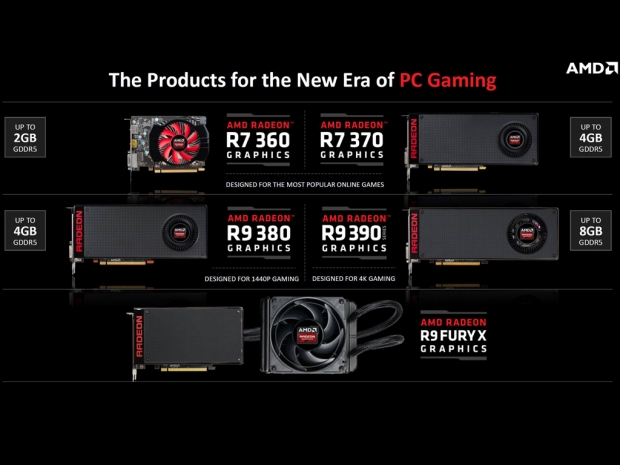The Radeon R9 380 is based on AMD's well known 28nm Tonga GPU which was behind the Radeon R9 285 graphics card and now known as the Antigua GPU. The GPU in question features 1792 Stream Processors, 112 TMUs, 32 ROPs and has a 256-bit memory interface.
Bear in mind that while the rest of the new Radeon 300 series GPUs are based on older Graphics Core Next (GCN) 1.0 and GCN 1.1 architectures, the Tonga GPU is actually based on GCN 1.2 architecture and brings plenty of improvements, including DirectX 12 as well as AMD Mantle and Vulkan support.
The new R9 380 will be available in 2GB and 4GB versions and according to AMD, should play any current games at 1080p resolution with maximum settings as well as provide playable framerate at 1440p resolution with "reasonably" high settings.
The Radeon R9 380 will end up clocked at up to 970MHz for the GPU while the memory works at 1425MHz (5.7GHz effective). It has a TDP of 190W and needs two 6-pin PCI-Express power connectors.
AMD priced the Radeon R9 380 at US $199, which puts it in direct competition with Nvidia's GTX 960 graphics card.






